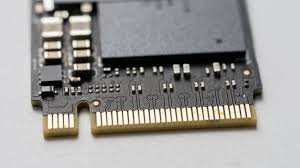
Chinese scientists have created a world-record flash memory chip that writes data at the world record pace of one bit every 400 picoseconds, establishing a new world record for semiconductor memory performance.
The device, named "PoX," is a non-volatile memory that far outpaces the velocity of even the fastest volatile memory devices, including SRAM and DRAM, which normally clock in at around 1–10 nanoseconds. To illustrate, a picosecond is a trillionth of a second, making this technology ludicrously fast.
Erasable memory is quick but discards data at power shutdown and hence not fit for energy-constrained systems. Their non-volatile counterparts such as flash memory are power-saving but slow enough for high-performance AI systems and real-time computing.
Now, scientists at Fudan University have gone beyond this frontier. Developing a two-dimensional Dirac graphene-channel memory, they've opened the door to new possibilities in ultra-fast and low-power data storage. The mechanism uses a sophisticated technique that's redefining the book on non-volatile memory potential.
The breakthrough, which appeared in the top-tier journal Nature, represents a significant milestone in high-speed computing. Optimization technologies based on artificial intelligence were attributed by many, including lead researcher Zhou Peng, with hastening the test process and reducing development time.
"This piece of work is a giant leap in the development of next-generation flash memory," said a Nature peer reviewer, praising the originality and potentially revolutionary nature of the research.